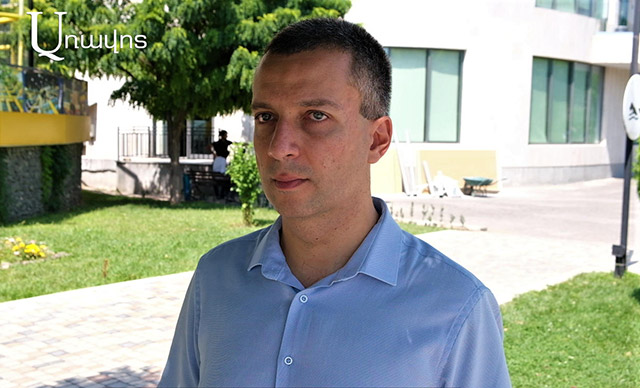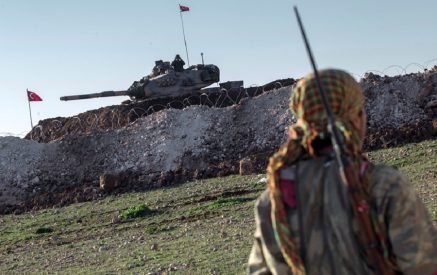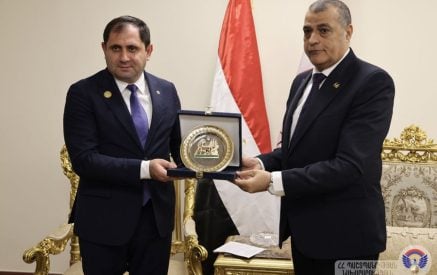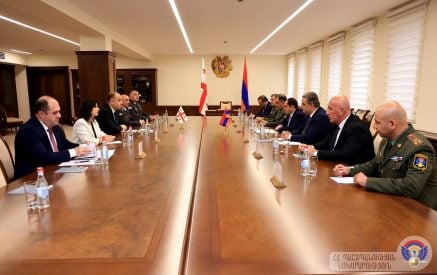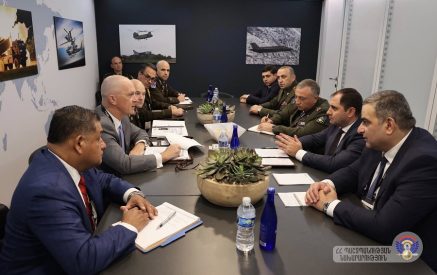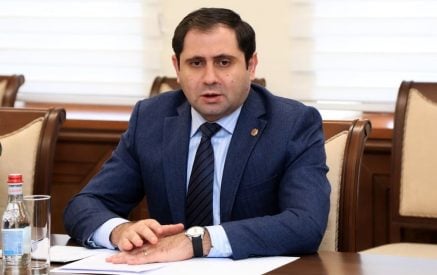Aravot Daily interviewed political scientist Benyamin Poghosyan.
- Poghosyan, recently, the enemy has repeatedly conducted military encroachments in the Yeraskh area and elsewhere. In your opinion, what military-political goals are they pursuing with such a working style?
We can say that there is tension across the entire border, and Azerbaijan is constantly taking steps to keep this tension high with constant fire. There are two goals. In the first case, Azerbaijan wants to force Armenia to open the communication routes from Azerbaijan to Nakhichevan, which are to be provided according to the November 10 announcement, which are to pass through the territory of Syunik province. Azerbaijan seems to have success in this issue, because yesterday the newly appointed Minister of Territorial Administration announced that if the railway communication is restored, it will pass through the Azerbaijan-Meghri-Nakhichevan road. In fact, Armenia agreed to provide Azerbaijan with the roads connecting Nakhichevan through the Syunik province. The second goal is to force Armenia to agree to the following: what was Soviet Azerbaijan is now the Republic of Azerbaijan. The goal is for Armenia to recognize the territorial integrity of present-day Azerbaijan within Soviet Azerbaijan, which not only implies recognition of Artsakh and the rest of Artsakh as part of Azerbaijan, but also recognition of the enclaves as part of Azerbaijan. These are the two short-term goals that Azerbaijan is trying to achieve by creating constant border tension.
- To what extent can we prove that the Armenian side is giving into this pressure?
In any case, statements made over the past two days, particularly the Prime Minister’s statement that Armenia is prepared to restart negotiations as soon as possible within the trilateral format in order to open communication routes prove that. As we know, meetings within the trilateral format at the level of deputy prime ministers ceased as of May, when the Azeri forces infiltrated Armenian territory. In the past, it seemed as though Armenia’s position was that as long as the Azeri forces have not left Armenian territory, the issue of negotiations cannot be discussed. But the Prime Minister did not voice that precondition in his speech.
Regarding the minister, he said that we won’t lose out on anything, but we will benefit from this. He implied that we should speak about Artsvashen instead of Tigranashen and Tavush’s enclaves. It seems that there is an implication that we are prepared to return the enclaves in exchange for Artsvashen, but it is obvious that those are not equivalent because Tigranashen and the Tavush province’s enclaves are located along the strategically-important route connecting Armenia to Iran and Georgia. In other words, surrendering them is an attack and threat to Armenia’s existential interests. But economically, returning Artsvashen does not present any threat to Azerbaijan. Therefore, placing these two on the same platform and presenting them as being equals means to be completely detached from reality.
Read also
- By the way, our officials, including the Prime Minister, say that there are ‘Azerbaijani territories’ in Armenia. Why do you believe that even on the basis of a basic level study, it is not proven that their annexation to Azerbaijan began in the ‘20s and ‘30s?
The problem is not only when they appeared in Soviet Azerbaijan. A not very in-depth study of history shows that in the late 1920s and early 1930s, when there was still a sub-federation, the borders of Soviet Armenia were slightly different and larger than the borders of Soviet Armenia, say, in 1987. However, let us not forget that Azerbaijan did not declare itself the legal successor of Soviet Azerbaijan, but the legal successor of the Azerbaijani Democratic Republic of 1918-20. Now, when our authorities say that there are Azerbaijani territories here that once were within the administrative borders of Soviet Azerbaijan as a result of not-so-clear processes, it is difficult for me to find a rational explanation because it not only contradicts our state interests, but also the truth.
- Back to the Prime Minister’s statement. He said, “One of the issues that I believe can be resolved quickly is the opening of regional communications and the agenda of ending the regional blockade.” According to your analysis, how much is the element of security included within this willingness to end the blockade?
It means that Armenia agrees that the roads from Azerbaijan to Nakhichevan should pass through the territory of Syunik province, and that is the most important thing for Azerbaijan. The only problem was whether Armenia would agree to provide a road to Azerbaijan through Syunik or offer alternative roads, which, by the way, exist. However, the Prime Minister’s statement that the process should be resumed very soon and his hope that success can be achieved quickly gives me grounds to believe that Armenia, even if it has not agreed to do so yet, will be very close to agreeing that Azerbaijan and Nakhichevan and the roads connecting to Turkey must pass through the territory of Syunik province. Moreover, it is probably not only about the railway, but it is not ruled out that there will be a road through Berdzor-Goris-Sisian-Nakhichevan. This creates serious security and unpredictable risks for the Syunik province because it means significant economic activation of Azerbaijan and Turkey in the Syunik region over the years. It is clear that Azerbaijan does not need to make a major military achievement now. They must first try to digest the occupied territories. Most likely, Azerbaijan will try not to digest all this at once, but will select several target points, turning them into “developed oases.”
First of all, we are talking about Shushi, where intensive work is already being done. During this period of 5-10 years, Azerbaijan will simply calmly wait for Armenians to leave Artsakh. And if the situation continues as it is now, it is clear that the Armenians will continue to leave Artsakh. Of course, Azerbaijan will first try to infiltrate Syunik economically, and then demographically. So, from the point of view of Azerbaijan, there is no need for military action at all now. If Armenia continues to not take steps to change the situation, then all that remains is for Azerbaijan to calmly wait.
- Nikol Pashinyan also said that “overcoming animosity can and should become one of the most important elements of our region’s foreign policy agenda.” Erdogan and Aliyev did not make such statements recently, but the opposite. In your opinion, how appropriate and realistic are such statements in comparison to the opponents’ rhetoric and activities?
I am under the impression that the leaders of our country live in a parallel reality. In the reality they live in, yes, it is possible to establish peace in the region, and for its sake, it is possible to allow Turkey’s and Azerbaijan’s economic infiltration of the Syunik region and the return of Armenian territories to Azerbaijan in the name of enclaves. The reality is different. In fact, Azerbaijan and Turkey are interested in evicting Armenians from Artsakh as soon as possible. By saying fast, I do not mean months. I am talking about years. Or they are interested in bringing the population of Artsakh to at least 20-25 thousand, about which, by the way, Aliyev stated.
Azerbaijan wants to achieve that goal in the next 5-7 years, so that in 2026-2027 there would be 20-25,000 Armenians in Artsakh. The second goal is to make Armenia as weak as possible. Now, Azerbaijan and Turkey will do their best to make Armenia significantly dependent on Turkey and a “client” state of Turkey. And when we talk about peace, we must understand that we mean the continuous eviction of Armenians from Artsakh and the transformation of Armenia into a “client” state of Turkey. Or we have to accept that our leadership is living in a different, parallel reality.
Interview by Luiza Sukiasyan


















































